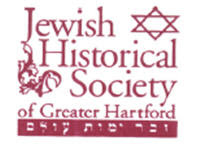His book, "From Generation to Generation," was one of the first books on Jewish genealogy and inspired a generation of individuals to begin their journey of discovery (including Tracing the Tribe). He was also among the founders of the very first Jewish genealogical society, in New York City.
Kurweill will also be the scholar-in-residence at this summer's 30th IAJGS International Conference on Jewish Genealogy - JGSLA 2010 - July 11-16, Los Angeles.
The venue is Beth El Temple in West Hartford, from 12.30-5pm. Kurzweill will also lead two workshops at the event. One will be for experienced genealogical researchers and one to help those discover what happened to relatives during the Holocaust. Fee: members, $12; others, $15. View the event brochure here for complete information on all 10 workshops and registration.
Family History Day is an opportunity for adults and middle- and high-school aged children to learn how to save family memories and treasures for future generations. The program will include 10 expert workshops on topics including conducting an effective interview; writing your own memoir; conducting genealogical research; archiving precious photos, papers and artifacts; and creating keepsake memories. A vendor showcase will display products and services related to genealogical research.He was interviewed - "Jewish genealogy as a spiritual pursuit" - in the Jewish Ledger.
Among his other books: "On the Road with Rabbi Steinsaltz: 25 Years of Pre-Dawn Car Trips, Mind-Blowing Encounters and Inspiring Conversations with a Man of Wisdom;" "The Torah for Dummies," "The Encyclopedia of Jewish Genealogy" and "My Generations: A Course in Jewish Family History," a popular text used for almost two decades in North American synagogue schools. An accomplished magician, he is also coordinator of the Talmud Circle Project, directed by Rabbi Steinsaltz.
He received the Distinguished Humanitarian Award (Melton Center, Ohio State University) for his unique contributions to Jewish education, and the IAJGS Lifetime Achievement Award.
In the interview, Kurweill says:
I believe that in the same way that the Talmud says that when the Temple was destroyed, they rebuilt by doing their family trees, in our generation we have the same task. As a rebuilding generation, we are doing our family trees to rebuild, to put the pieces back together again, to take that shattered people and to bring them back together again. Our work is mitzvah work. I think we are doing a good job.Learn how he developed an interest in genealogy:
When I began investigating my family history I found that there were no guidebooks. I ended up writing the book I wish I had been able to find.How does an absolute beginner start?
The first step is to talk to relatives. That's always the first step. The documents will wait. The people don't wait. Talk to every relative you can find. Talking to relatives is the most important thing to do. After that, I'd say you should explore www.jewishgen.org. This is cyberspace headquarters for Jewish genealogy. If you are interested in Jewish genealogy and you go to this website, we won't see you again for months!The story also addresses how his spiritual life meshes with genealogy:
Interest in Jewish genealogy is growing. More and more people each year are becoming convinced that you can be very successful in climbing your Jewish family tree. There is no question that the major factor in the growth of this pursuit is the Internet and all that it offers the researcher.
It seems to me that every step of the way when we pursue our genealogical research, we are involved in mitzvahs. Who more than we honor the elderly? Who more than we reach out to the elderly people in our family and our communities and make them feel like we need them - because we do. And what is that but a mitzvah, to honor the elderly. Who more than we ask questions? The Talmud consists of questions, thousands of ways of asking different questions. Did you ever ask the question, "Where did you get that information from?" Well, there is a little code word in the Talmud for the question, "Where did you get that question from?" And who has perfected the art of asking questions more than we have?Read the complete interview at the link above
Who like we genealogists performs the mitzvah of ahavat Yisrael, the love of the people of Israel, which really means tolerance. What Jews in the world are more tolerant than Jewish genealogists? Why are we tolerant? We are tolerant because we learn that on this branch of the family there are Galicianers, and on this branch there are Litvaks, and on this branch there are assimilated Jews and on this branch there were intermarriages! And we see that each of our families really is everybody, and in the process we become tolerant.







































No comments:
Post a Comment